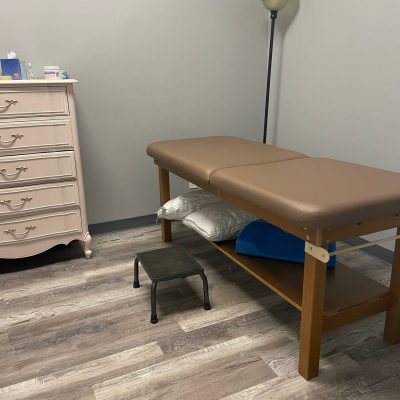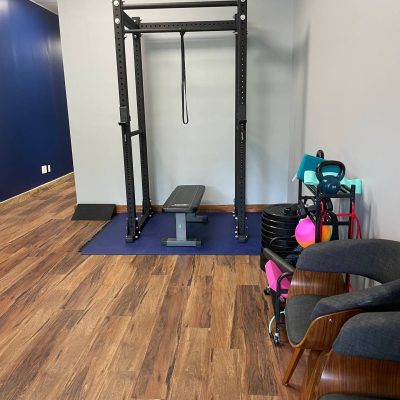Nocturia, or the need to urinate frequently at night, can have a significant impact on quality of life. It can interrupt sleep and leave you feeling tired and sluggish during the day. Pelvic floor therapists can play a crucial role in helping to manage and reduce nocturia. In this blog post, we’ll explore some ways that a pelvic floor therapist can help decrease nocturia.
- Pelvic floor muscle exercises: Pelvic floor muscle exercises, also known as Kegels, can help improve bladder control and reduce nocturia. It’s not just about kegels! These muscles need to be able to contract and relax just like any other muscle in the body. These muscles should be coordinated with your deep abdominal muscles, spinal muscles, hip muscles, and work of breathing. A pelvic floor therapist can work with you to develop an exercise program that is tailored to your specific needs and goals.
- Bladder retraining: Bladder retraining involves gradually increasing the amount of time between urinations, which can help train the bladder to hold more urine and reduce the need to urinate at night. A pelvic floor therapist can help guide you through this process and provide support and encouragement along the way.
- Behavioral modifications: Making certain behavioral modifications, such as reducing fluid intake before bedtime and avoiding bladder irritants, can help reduce nocturia. A pelvic floor therapist can provide guidance on making these modifications and help you develop a plan to implement them into your daily routine.
- Manual therapy: Manual therapy techniques, such as visceral mobilization, joint manipulation, scar tissue mobilization, and trigger point release, can help reduce muscle tension and improve bladder function. A pelvic floor therapist can use these techniques to help alleviate symptoms of nocturia.
- Education: A pelvic floor therapist can provide education on proper bladder habits and techniques to reduce the need to urinate at night. This may include information on proper fluid intake, voiding techniques, and how to recognize and manage bladder irritants.
Nocturia can be a challenging condition to manage, but a pelvic floor therapist can provide valuable support and guidance. By working with a pelvic floor therapist, you can learn techniques to improve bladder control and reduce the need to urinate at night, allowing you to get the restful, restorative sleep you need to feel your best.
There are several strategies that can be used to decrease nighttime urination (nocturia), including:
- Reduce fluid intake before bedtime: Limiting fluid intake before going to bed can help reduce the amount of urine produced at night and decrease the need to urinate.
- Avoid bladder irritants, especially in the afternoon and evening. They can irritate the bladder and increase urine production, so avoiding these substances before bedtime may help reduce nocturia. Bladder irritants include caffeine, seltzer water, alcohol, spicy foods, acidic foods, artificial sweetener, chocolate, and certain medications such as diuretics and antihistamines.
- Practice habits to improve your quality of sleep: magnesium supplementation, sleep in a cool, dark room, use a sound machine, get 10-15 minutes of morning sunlight to help your body produce melatonin naturally, and exercise daily.
There are several habits or behaviors that can make nocturia worse. Some of these include:
- Consuming fluids before bedtime: Drinking a large amount of fluids before going to bed can increase the production of urine and cause the need to urinate more frequently at night.
- Consuming caffeine, alcohol or spicy foods: These substances can irritate the bladder and increase urine production, leading to nocturia.
- Taking diuretic medications: Diuretics are medications that increase urine production and can lead to nocturia.
- Lack of physical activity: A sedentary lifestyle can contribute to fluid retention in the body, leading to increased urine production and nocturia.
- Smoking: Smoking has been linked to bladder irritation and can contribute to nocturia.
- Poor sleep habits: Poor sleep habits, such as not getting enough sleep or having disrupted sleep, can disrupt the normal functioning of the body and contribute to nocturia.
- Underlying medical conditions: Certain medical conditions, such as diabetes or heart failure, can cause nocturia.
Nocturia, or the need to urinate frequently at night, can be related to stress for several reasons. Stress can have a direct impact on the body’s urinary system, leading to an increase in urinary frequency and urgency.
One way that stress can impact the urinary system is by activating the sympathetic nervous system, which is responsible for the body’s “fight or flight” response. When the sympathetic nervous system is activated, it can cause the bladder to contract, leading to the need to urinate more frequently. Stress can also increase the production of certain hormones, such as cortisol, which can lead to an increase in urine production and contribute to nocturia.
In addition to these physiological factors, stress can also impact sleep quality, which can contribute to nocturia. When we are under stress, it can be difficult to relax and fall asleep, and we may wake up frequently throughout the night. This can interrupt the normal sleep cycle and lead to an increase in nighttime urination.
Finally, stress can also contribute to other conditions that can cause nocturia, such as anxiety and overactive bladder syndrome. These conditions are often related to stress and can lead to an increase in urinary frequency, urgency, and incontinence.
Waking up at nighttime to urinate can actually be caused by habit. When we regularly wake up to use the bathroom at a certain time each night, it can train the bladder to signal the need to urinate at that time, even if the bladder is not full. One way to diminish the routine urge at night is to try to ignore the urge to break the habit. Ways to help ignore urinary urges at night include deep breathing, counting backwards from 100, singing a song in your head, and simply telling yourself that your bladder is not actually full.
Our clinic is conveniently located in Hoover, Alabama, near the Galleria. We have experienced clinicians with advanced training in the treatment of Pelvic Floor disorders. Contact us to schedule an appointment!







